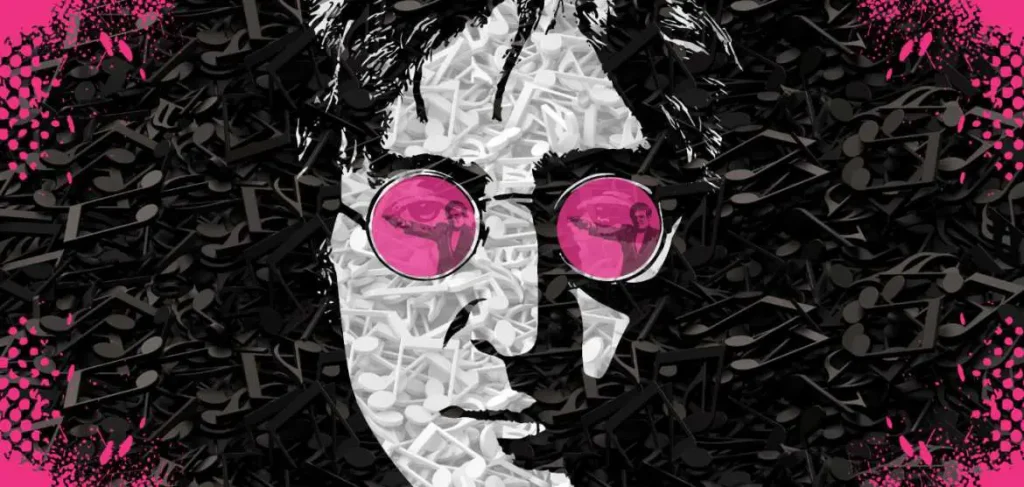April the 25th, 2023 – The Croatian National Theatre (HNK) in Zagreb recently paid homage to the English music legend John Lennon in the form of an opera written by no less than former Croatian President Ivo Josipovic.
Composers love to play with words, to listen to how they sound when set to music, to write and re-write the notes until they feel the ‘obtained’ amalgamate expresses an emotion, a situation or a story the way they see it in their never resting imagination. I myself think they hear the music constantly, like when walking around a shopping mall – not as a noise, but as some musical syllable or a theme. And so they make our lives indescribably richer and happier. Just try to imagine what we’d be listening to on the radio – news and more news, tales, just words, words, and more words. Imagine.
Zagreb, the capital city of all Croats wherever they may be located around the world, would maybe surprise you with the number of cultural and arts institutions it boasts, and, especially, with the number of cultural happenings every single day. It kind of reminds me, however on an immeasurably smaller scale, of my young days in New York when I wanted to see every single thing, every single day, and kept feeling unjustly deprived because I simply couldn’t. The same happens in Zagreb, albeit proportionately.
Zagreb’s very first public theatre came to be in the year 1834. The present imposing building of the Croatian National Theatre has been there ever since 1875. It’s hard to imagine how many things have taken place there in that time. In the Croatian National Theatre in Zagreb, usually only ”big” pieces of theatre, opera and ballet are performed, and they’re not only big, but also so good that every opera evening over the last several months has been a total sellout.
I have a special affinity with that theatre’s opera intended for kids up to three years old. It’s praiseworthy and a big congratulations to the artists, and to the management, is due. I was surprised fairly recently when a teenager asked who (tf) Paul McCartney is after he released a song with Rihanna and Kanye West, realising how talented he is. That can easily transport us back to those days of a world blooming and flourishing in more sense than one, with The Beatles as an emblematic group of young men who ruled the world ( because they ruled our hearts).
If you weren’t around back then, Google is your friend. It will tell you precisely who John Lennon was. Croatian composer Ivo Josipovic, who is also the country’s ex president, was among the billions utterly shocked by the murder that suddenly put an end to John Lennon’s life at the age of 40. Intrigued by the psychological profile of Mark Chapman who shot
Lennon in the street while declaring himself to be true fan, Josipovic felt the urge to dedicate a piece of performative work to Lennon and to his memory. It took years until it finally came out of the nib of his pen as an opera simply entitled ”Lennon”.
”Lennon” is a big piece of theatre, involving a large ensemble of singers, dancers and a full orchestra. As expected, the music performed has nothing to do with the music of The Beatles. In a modern musical idiom, in brief, it tries to imagine what flashes bolted through Lennon’s mind between the moment he was shot and the moment he died. His grief for the mother, whom he lost when he was just 18, plays out, as do his ambiguous relationships with his first wife Cynthia and with May, his assistant, and the other three musicians from the band (where Paul McCartney appears as the closest to Lennon) and, particularly, naturally and throughout the piece, his relationship with Yoko Ono, his second wife, plays out.
In other words, the last seconds of his natural existence on this Earth play out, lasting for almost two hours, giving shape to his memories, emotions and, especially, to his feelings for the most important people in his life as he slips from this world into the next. Amongst it all, he occasionally alludes to how it is necessary to give peace a chance, the cause Lennon stood for so firmly and profoundly.
Yet another very interesting feature of ”Lennon” is that it is sung in English. Josipovic’s work was clearly a huge undertake, with beautiful artistic delivery among impressing stage sets and a masterful design of lights.
Thanks to the cooperation of the Zagreb Music Biennale and the Croatian National Theatre in Zagreb, this project causes feelings of warmth and reminds us that this small nation has always been a participant and a contributor to the artistic memory of the world.
For more, make sure to follow our lifestyle section.










